I am posting this on behalf of the Norwich Historical Society to make more people aware of what life in Norwich 100 years ago may have been like.
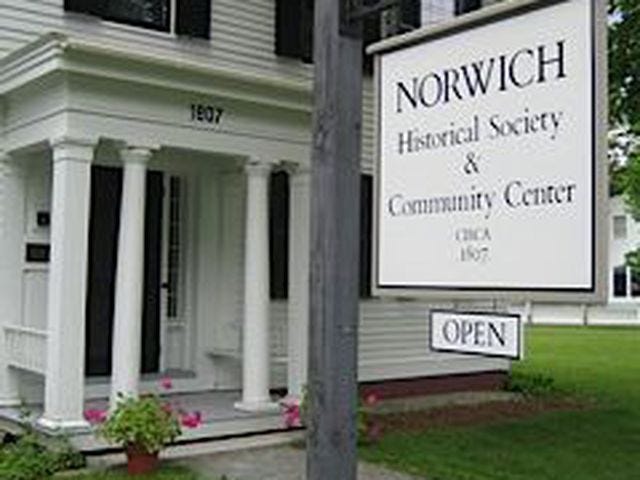
100 YEARS AGO in NORWICH
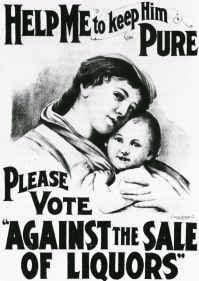
January 16, 2020 marks the 100-year anniversary of the start of Prohibition, when alcohol was banned across the United States for 13 years. Norwich's story of prohibition and temperance reaches back 200 years. It's a story about the role of the church, town/gown relationships, and the organizational skills and power of women.
The first Temperance Society was established in the North Parish Church in 1827. However, Norwich was never of one mind about the temperance cause. In 1853 Norwich voted 177 to 104 against ratification of the prohibitory liquor law that had been established by the state legislature that would forbid the selling, furnishing, or giving away of intoxicating liquor. At church, the Deacons had a response:
Resolved that hereafter no person shall be admitted as a member of this church who shall not engage to abstain from making, selling or using ardent spirits as a drink or luxury.
Whether or not their resolution held sway is debatable. Norwich had another institution in the center of town with plenty of alcohol being imbibed.

Letters and diaries written by Norwich University students testify to alcohol in the barracks, at meals with professors, and at parades and other celebrations.
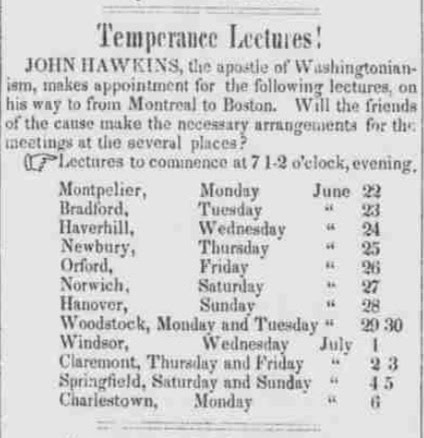
In 1846, this notice appeared in the Green Mountain Freeman, announcing that John Hawkins would be giving temperance lectures in towns as he journeyed from Montreal to Boston. Norwich was on the schedule for Saturday, June 27th at 7 p.m. He probably gave his lecture from the pulpit of the Norwich South Congregational Church next to the parade grounds of Norwich University.
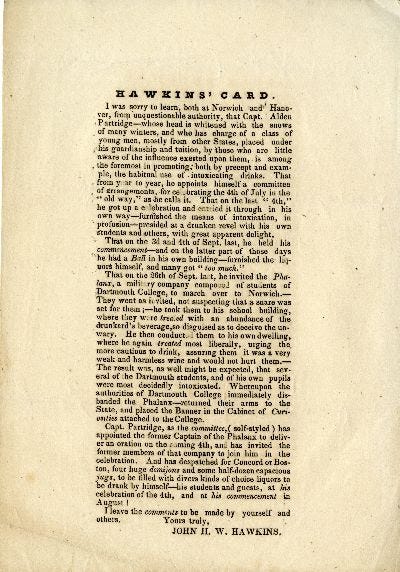
Hawkins learned a lot during his visit to Norwich. Soon after his visit, he published this card to be distributed widely. In it he accuses Norwich University President, Alden Partridge, of promoting the "habitual use of intoxicating drinks....and on the last 4th of July, he "presided at a drunken revel with his own students and others, with great apparent delight." He then "urged the more cautious to drink... the result was, as well might be expcted, that several of the Dartmouth students, and of his own pupils were most decidedly intoxicated."
Norwich's Deacons had something to say and gathered at a "large and respectable meeting." They put out a statement to the newspapers: "Resolved, That John H.W. Hawkins, the great apostle of temperance, deserve the thanks and sympathies of all true temperance men, for his bold, intelligent and fearless efforts. ... and Resolved, that the Card...is substantially true in all its material allegations."
It was after the Civil War and after Norwich University moved to Northfield, Vermont, that Temperance makes an appearance again in Norwich and it was the women now taking a stand.
The Norwich chapter of the Woman’s Christian Temperance Union was formed in 1874 by women concerned about the destructive power of alcohol on families and the community. Activities included raising public awareness of the proposed Eighteenth Amendment prohibiting the making, transporting, and selling of alcoholic beverages. Some activists felt that the only way to enact prohibition would be to give women the right to vote and the WCTU and Suffrage cause became joined. Many Norwich WCTU women were also suffragists and the leadership experience gained in the WCTU proved effective in the suffrage movement.
Liquor Traffic Brings Poverty
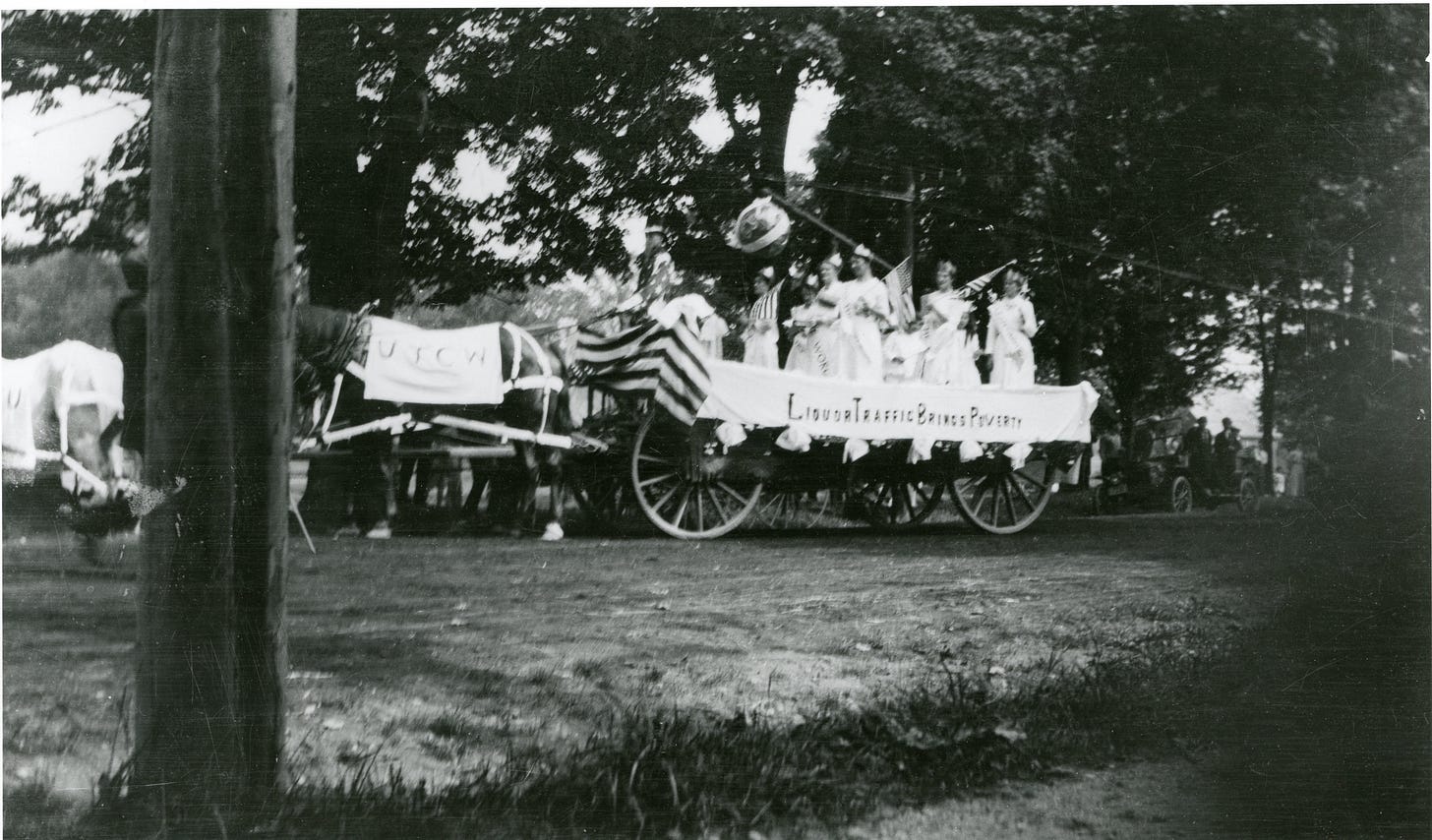
Parade floats were a common way women brought the causes of prohibition and suffrage to the community. This Norwich parade float features WCTU women dressed in white with a banner draped over the horses pulling their wagon.
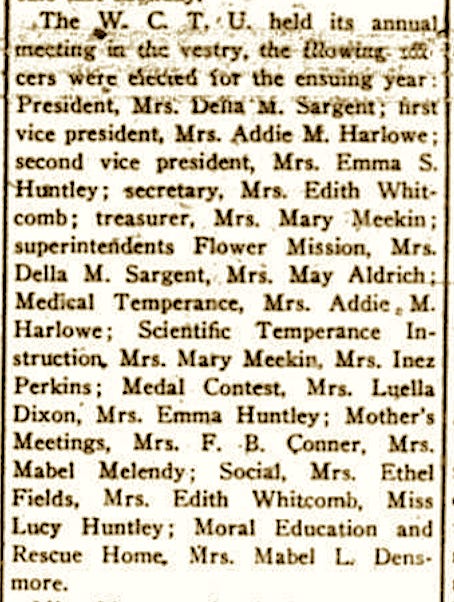
The women met regularly in the church vestry to plan their outreach efforts. Much of their work lay in educating themselves and community members about the dangers of alcohol. This newspaper clipping reveals some of the topics they studied and the activities they undertook such as mother's meetings, a medal contest, and moral education.
Water is Life
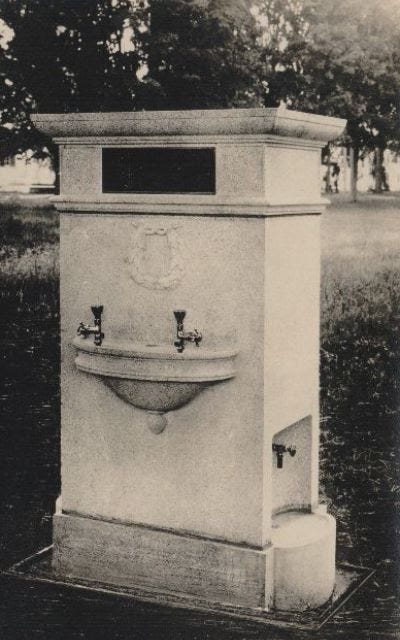
Local WCTU chapters around the country were urged to erect drinking fountains in their towns so that men could get a drink of water without entering saloons and staying for stronger drinks.
One such fountain (one of the few still standing) was erected on the town green by the Norwich chapter of the WCTU in 1925, and remains a monument to Norwich women’s involvement in the temperance cause and to a heritage of women's activism in our community.
Copyright © 2020 Norwich Historical Society, All rights reserved.
You are receiving this email because you became a member, donor, or signed up at an event.
Our mailing address is:
Norwich Historical SocietyP. O. Box 1680277 Main StreetNorwich, VT 05055
Add us to your address book
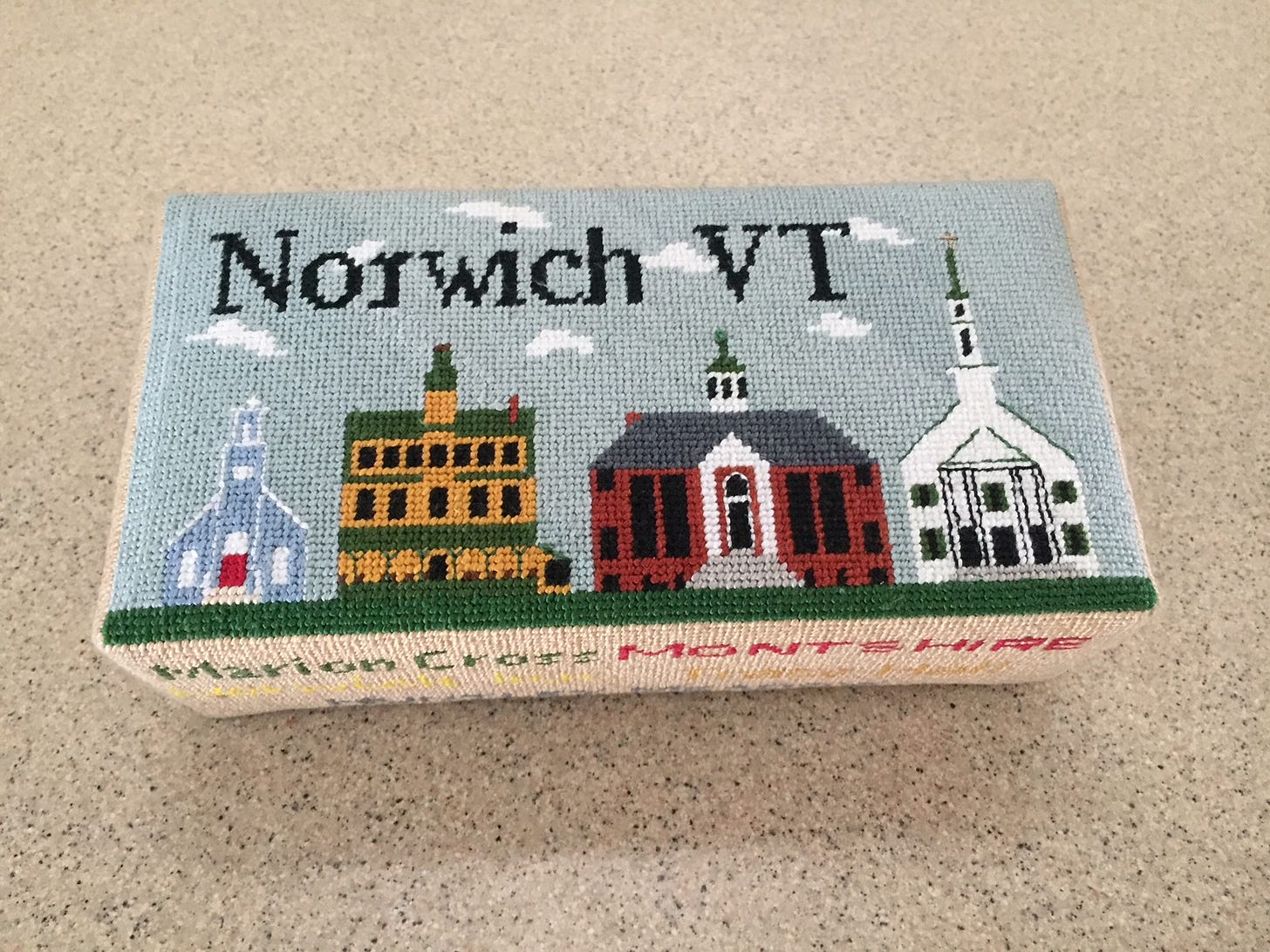
My Logo


